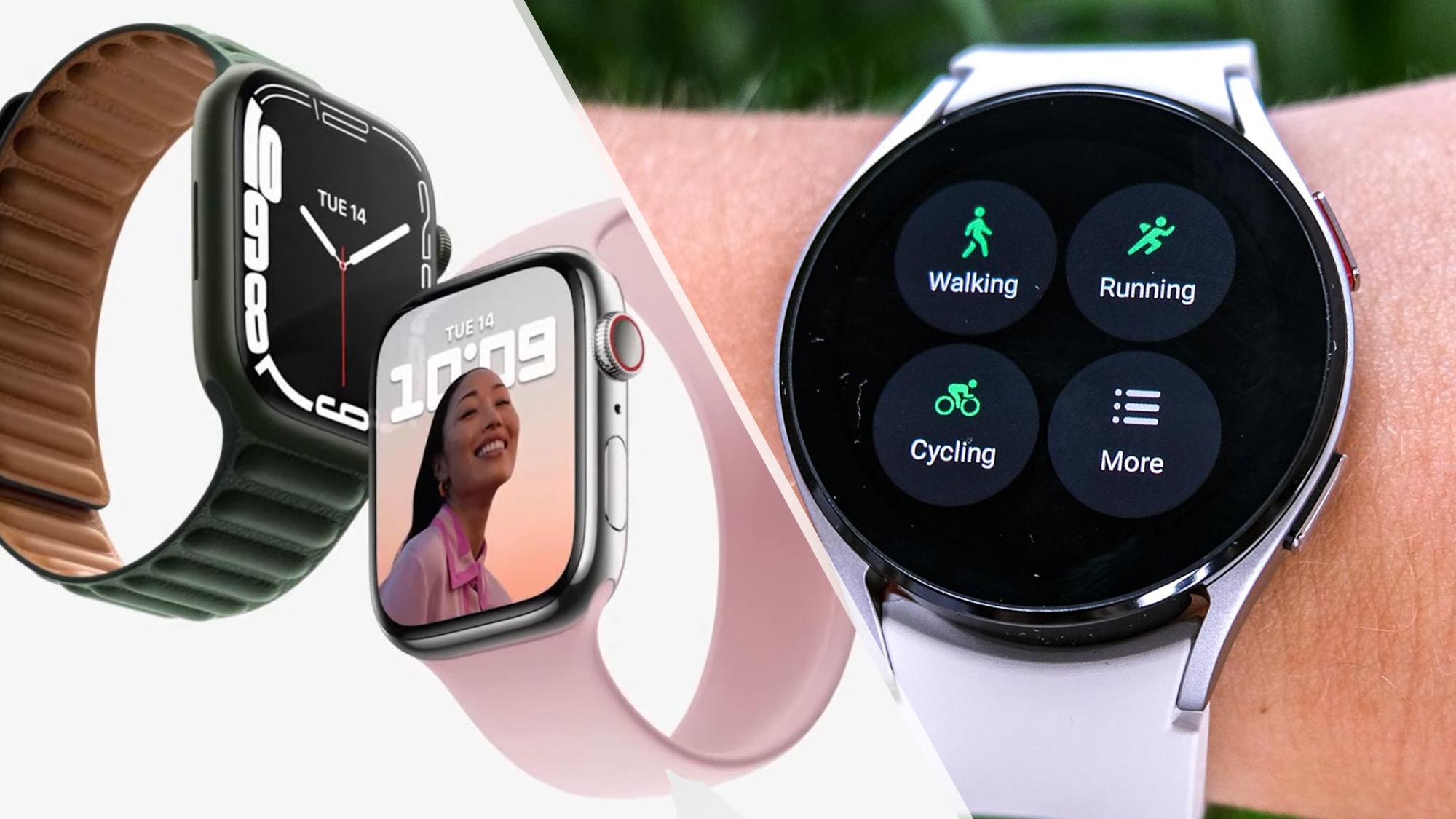Why I'm not buying the Apple Watch 7 — or any smartwatch — this year
I was looking for more than just a bigger screen

As I watched the announcements of the Apple Watch 7, the Samsung Galaxy Watch 4 and the Fitbit Charge 5, I couldn’t help but feel a bit let down. After a few steady years of some remarkable improvements when it came to health tracking — SpO2 monitoring, fall detection, aFib alerts, ECG, and EDA scanning — it feels like smartwatch and fitness tracker innovation has plateaued.
This year, all of the improvements to the three major wearables were mostly cosmetic. The Apple Watch 7 got a larger screen — which admittedly is a big improvement. So too did the Fitbit Charge 5, whose display is now in color. Samsung’s watches got a bit of a redesign, too. And all of them look great, but it’s more than aesthetics I’m after if I’m looking to upgrade from, say, an Apple Watch 6.
Don’t want to take my word for it? Then how about Marques Brownlee’s?
- The best smartwatches you can strap on your wrist
- Keep in shape with the best fitness trackers
- Plus: How to install Windows 11 right now — and avoid the wait
But where was the blood pressure monitor? Where’s the glucose monitor? Thermometer? We’ll have to wait for future Apple Watches to get those capabilities, it seems. According to a report in The Wall Street Journal, Apple does have bigger health plans for its watches, but we’ll have to wait until next year at the earliest.
Yes, the Galaxy Watch 4 has bioelectrical impedance analysis, but I don’t want a smartwatch to tell me how fat I am.
I’m not overly surprised that the Fitbit Charge 5 doesn’t have anything groundbreaking; it essentially inherited features from the Fitbit Sense, which was launched a year ago. Now that Fitbit has some premium fitness trackers, I would expect the bulk of innovative features to show up in them before trickling down.
More importantly, where’s the longer battery life? All three of the devices mentioned have the same battery life as the previous generation — about 18 hours with the Apple Watch and the Galaxy Watch 4, and about 5 days with the Fitbit. While the FItbit’s endurance is acceptable — though it drops by a lot if you use GPS — one of the main reasons why I prefer to use one of the best running watches rather than an Apple Watch for workouts is that I know my Garmin will still be good for another few days. If I could go an entire weekend — two days, 48 hours — without having to recharge a smartwatch, I’d be happy.
Get instant access to breaking news, the hottest reviews, great deals and helpful tips.
In 2020, Fitbit impressed me with the Fitbit Sense, which introduced a number of new health-tracking features that really seemed to push the smartwatch category forward. This year, I was really looking forward to seeing how Apple and Samsung would respond. It didn’t help that all the rumors from Jon Prosser got me worked up, too.
I get that we can’t have major innovations every year to smartwatches. It’s tough to cram a lot of new tech into gadgets this small. Maybe I’m asking for too much, but I was really looking forward to something more than this.
- Next: Apple Watch 7 vs Apple Watch 6: What's the difference?

Michael A. Prospero is the U.S. Editor-in-Chief for Tom’s Guide. He oversees all evergreen content and oversees the Homes, Smart Home, and Fitness/Wearables categories for the site. In his spare time, he also tests out the latest drones, electric scooters, and smart home gadgets, such as video doorbells. Before his tenure at Tom's Guide, he was the Reviews Editor for Laptop Magazine, a reporter at Fast Company, the Times of Trenton, and, many eons back, an intern at George magazine. He received his undergraduate degree from Boston College, where he worked on the campus newspaper The Heights, and then attended the Columbia University school of Journalism. When he’s not testing out the latest running watch, electric scooter, or skiing or training for a marathon, he’s probably using the latest sous vide machine, smoker, or pizza oven, to the delight — or chagrin — of his family.
 Club Benefits
Club Benefits





